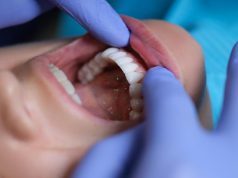Current unemployment linked to harder physical work, surgical treatment, risky alcohol consumption
THURSDAY, April 9, 2015 (HealthDay News) — Many head and neck cancer survivors do not return to work, according to a study published in the April issue of Head & Neck.
Robert Koch, M.D., from Jena University Hospital in Germany, and colleagues examined employment and psychological factors in head and neck survivors with survivorship of at least two years. A survey was administered to 55 head and neck cancer survivors, aged 60 years or younger, including subscales from the Functional Assessment of Cancer Therapy (FACT) instrument, the Miller Behavioral Style Scale, the General Perceived Self-Efficacy Scale, the Patient Health Questionnaire-9 (PHQ-9), and the Hornheider-Fragebogen short version.
The researchers observed a decrease in the rate of employed patients, from three-quarters of patients before diagnosis to one-third at an average of 66.8 months after diagnosis. There was a correlation between current unemployment with harder physical work before diagnosis, surgical treatment, and current risky alcohol consumption. Decreased FACT functional and social well-being and higher PHQ depression scores were reported among unemployed survivors.
“The likelihood not to return to work is high after head and neck cancer treatment,” the authors write. “Beyond standard rehabilitation programs, the development of specific psychosocial interventions for this patient group may be warranted to support the patients’ to return to work.”
Copyright © 2015 HealthDay. All rights reserved.








